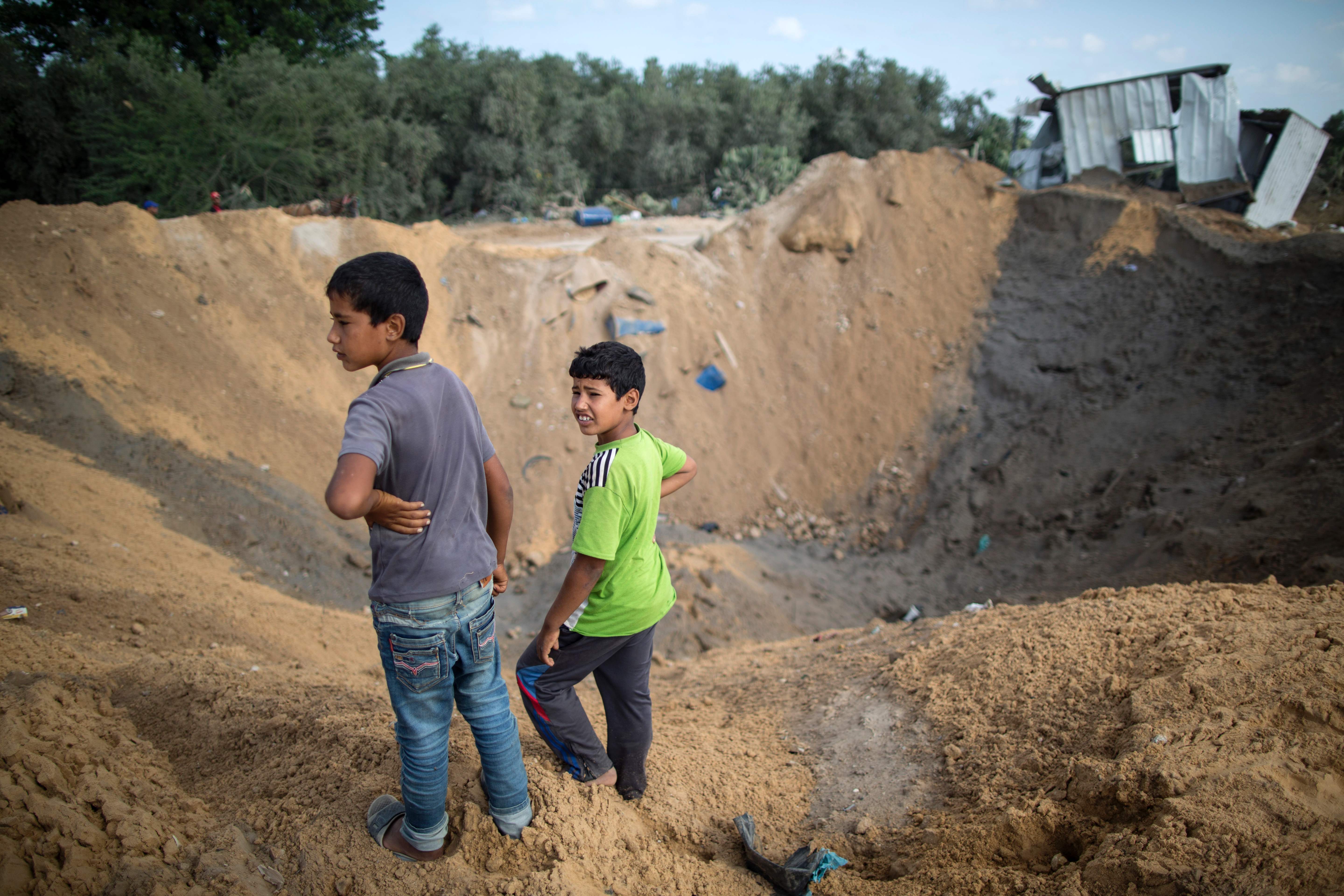
Jerusalem: Palestinian militants in the Gaza Strip launched a rocket that landed in the Israeli border town of Sderot on Sunday and Israeli aircraft and tanks responded by shelling the Gaza town of Beit Hanoun, the army and police said.
The rocket caused no injuries or damage in Sderot, where it landed in a residential area, police said.
An Israeli shell during an initial retaliation damaged a Beit Hanoun water tower and there were no casualties, local residents said.
Multiple air strikes later in the evening hit at least 30 different sites in the Gaza Strip belonging to Hamas, the smaller Islamic Jihad and other militant groups and two people were lightly hurt, Gaza health officials said.
A music festival in Sderot attended by hundreds of Israelis was temporarily disrupted as people sought shelter, television footage showed.
The Israeli military said aircraft had attacked targets in the northern Gaza Strip and added that since the beginning of the year, 14 Gaza rockets had hit Israel.
Israeli army spokesman Lieutenant-Colonel Peter Lerner said in a statement that the military "remains committed to the stability of the region and operated in order to bring quiet to the people of southern Israel."
"When terrorists in Hamas' Gaza Strip, driven by a radical agenda based on hatred, attack people in the middle of the summer vacation, their intentions are clear - to inflict pain, cause fear and to terrorize," Lerner said.
Hamas spokesman Sami Abu Zuhri said: "We hold (Israel) responsible for the escalation in the Gaza Strip and we stress that its aggression will not succeed in breaking the will of our people and dictate terms to the resistance."
Hamas controls the Gaza Strip and has observed a de-facto ceasefire with Israel since a 2014 war but some small armed cells of Jihadist Salafis have defied the agreement and have continued to occasionally launch rockets at Israel.
Israel has held Hamas responsible for all attacks originating in the coastal enclave.
More than 2,100 Palestinians, mostly civilians, were killed during the 2014 Gaza conflict. Sixty-seven Israeli soldiers and six civilians in Israel were killed by rockets and attacks by Hamas and other militant groups.
Despite the ceasefire, Hamas has vowed to continue to dig tunnels intended to infiltrate Israel, and while Hamas leaders stress they do not seek an imminent war, they see tunnels as a strategic weapon in any future armed confrontation.